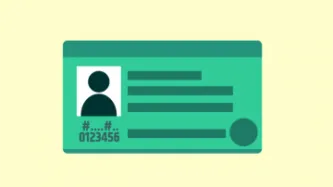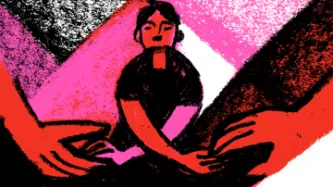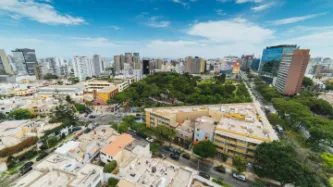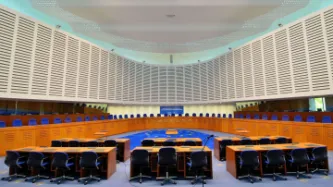Search
Content type: Case Study
This piece was written by Privacy International, based on publicly available information and on research by our partners at Hiperderecho
Overview
The Documento Nacional de Identidad (DNI) is the personal ID card recognised by the Peruvian State in any situation where a person might have to identify themselves, be it in an administrative, judicial, civil, or commercial context. The DNI also grants its holder the right to vote.
The DNI issuing and overseeing body is the Registro Nacional de…
Content type: Examples
While traditional media sought to criminalize the widespread November 2020 protests in Peru following the Congressional ouster of President Vizcarra, witnesses disseminated videos and photographs of police abuse on social networks. In the fear and uncertainty, many myths also circulated. In Peru, citizens have the right to refuse to allow police to check their cellphones unless they have a court order; slowed or absent wireless connections may simply be due to overload; as public officials,…
Content type: Examples
On November 9, 2020, after a year of escalating tensions, Peruvian president Martín Vizcarra was impeached on the grounds of "moral incapacity" by lawmakers threatened by his anti-corruption investigations and the policy reform he led. The street protests that followed all over the country were coordinated via Instagram, Twitter, WhatsApp, and TikTok (#MerinoNoMeRepresenta) by hundreds of newly-created small, decentralised organisations. The march on November 14 is thought to be the largest in…
Content type: Examples
Peruvian police have used force, arbitrary arrests, undercover infiltrators, tear gas, and forced disappearance against marchers protesting the removal of president Martín Vizcarra. Three protesters have been killed, more than 60 have disappeared, and hundreds have been injured. While the traditional media has either ignored the protests or depicted them as criminal, social media and the internet have been crucial in documenting police abuses via shared images and video. Police have begun using…
Content type: Long Read
On 25 May 2021, the European Court of Human Rights issued its judgment in Big Brother Watch & Others v. the UK. Below, we answer some of the main questions relating to the case.
After our initial reaction, below we answer some of the main questions relating to the case.
NOTE: This post reflects our initial reaction to the judgment and may be updated.
What’s the ruling all about?
In a nutshell, one of the world’s most important courts, the Grand Chamber of the European Court of Human…
Content type: Examples
As Europeans went back to work and social spaces in early summer 2020, they discovered that these had been newly equipped with a variety of technologies that brought surveillance with them as the price of preventing a resurgence of the coronavirus. Among the tools being adopted: a Romware Covid Radius bracelet, which beeps whenever two workers get too close to each other; laser technology to ensure social distancing in shopping malls; mask detection technology, facial recognition to ensure…
Content type: Video
You can listen and subscribe to the podcast where ever you normally find your podcasts:
Spotify
Apple podcasts
Google podcasts
Castbox
Overcast
Pocket Casts
Peertube
Youtube
Stitcher
And more...
And support PI's work here: support.privacyinternational.org
Content type: Examples
Corruption scandals have added to Latin America’s challenges in dealing with the coronavirus. In Ecuador, prosecutors identified a criminal ring that colluded with health officials to sell body bags to hospitals at 13 times the normal price, and many others are accused of price-gouging for other medical supplies.
The former Bolivian health minister is under house arrest awaiting trial on corruption charges, government officials in seven Brazilian states are under investigation for misusing…
Content type: Examples
When Google and Apple announced their joint platform for contact tracing, the companies said the system would not track users’ locations. By mid-July, the resulting apps had been downloaded more than 20 million times in companies such as Germany and Switzerland. However, in order for Bluetooth, which the app requires, to work on Android phones, users must enable location services, with the result that Google may be able to track their location. Governments and health officials in Germany,…
Content type: Case Study
The Peruvian government has a history of collaboration with the private sector in developing technology with the alleged purpose of providing greater security to citizens. The most recent example, the smartphone application "Peru En Tus Manos" launched in the context of the Covid-19 crisis, has been developed in a similar fashion and currently collects geolocation data on more than a million users. Although Peru has a proper legal framework for public private partnerships, developments are…
Content type: Examples
Many of the technologies used to combat the coronavirus pandemic, including monitoring and analysing social media posts, telecommunications location data, and the use of sensors, were first tested on refugees during the 2015 crisis and are now being repurposed in the name of public health. In 2019, the European border security agency Frontex published a €400,000 tender for social media analysis services hoping to better predict future migration patterns; the tender was withdrawn after an…
Content type: Examples
It's been two months since the launch of "Perú en us manos", the mobile app promoted by the Peruvian government amidst the Covid-19 pandemic. Until now the app did not accomplish the ambitious goals it set out to.
On its first month the app had detected 1400 risk zones while there where already 36,000 confirmed infection cases. There is little transparency on how those risk zones are estimated. Developers of the app state that only one fifth of the data provided by the Health Ministry is clean…
Content type: Examples
Our partners from Hiperderecho in Peru proposed 15 measures to improve the COVID-19 app that the Peruvian Government is rolling out in the country (in Spanish).
Link: https://hiperderecho.org/2020/04/quince-propuestas-para-mejorar-la-aplicacion-del-gobierno-del-covid-19/
Content type: Examples
Liechtenstein is the first European country to use biometric electronic bracelets to implement a real time coronavirus tracking programme. The bracelet, which sends skin temperature, breathing, and pulse, among other metrics, for analysis in a Swiss lab, is being offered to 5% of the population. The country, which acted early to prevent the epidemic, plans to roll the bracelets out to the entire population by autumn.
Source: https://inews.co.uk/news/health/coronavirus-testing-latest-…
Content type: Examples
Eight days after instituting a gender-based quarantine schedule, Peruvian president Martin Vizcarra cancelled the measure two days before it was due to end. It had been met with a backlash from LGBTQ+ activists, who feared trans and binary people would face increasing street harassment from police. However, it also proved that because women do a disproportionate share of domestic work, gender separation forced them to gather in large groups on the days they were allowed out. Instead…
Content type: Examples
On April 2 Peruvian president Martín Vizcarra issued a controversial rule that men and women must observe quarantine on different days: men may leave their homes on Mondays, Wednesdays, and Fridays, while women may leave only on Tuesdays, Thursdays, and Saturdays. No one is allowed out on Sundays. Some critics are concerned that the plan will lead to disproportionate harassment of LGBTQ+ people because the police are instructed to stop people based on gender presentation. The purpose, the…
Content type: Examples
GDPRHub is collecting a list of projects around the world that are using personal data to combat the novel coronavirus. The list is divided into categories such as decentralised contact tracing apps and frameworks; centralised contact tracing systems; lockdown enforcement; self-assessment apps; mapping projects; and statistical analysis. The site also tracks COVID-19-releated data protection issues.
Source: https://gdprhub.eu/index.php?title=Projects_using_personal_data_to_combat_SARS-…
Content type: Examples
Led by Germany's Fraunhofer Heinrich Hertz Institute for Telecoms, technologists and scientists from at least eight countries, are working on a proximity-based contact tracing technology that complies with GDPR. The Pan-European Privacy-Preserving Proximity Tracing project (PEPP-PT) is intended to leverage smartphones to help disrupt the spread of infection by notifying individuals when their smartphones are near enough to to that of another person to carry out a Bluetooth handshake - thereby…
Content type: Examples
On March 20, the Peruvian government introduced a website where citizens can retrieve the results of tests for COVID-19. The site asks only for the patient to fill in their National ID number and a simple captcha, making it easy for unauthorised parties to access others' results and put people at risk of exploitation and discrimination.
Source: https://saludconlupa.com/noticias/peru-debilidades-de-plataforma-del-ministerio-de-salud-pueden-exponer-informacion-clinica-de-pacientes-covid-19…
Content type: Examples
On March 19, the Peruvian government instituted a daily curfew from 8pm to 5am, which applies to all but those working to provide essential services. Members of the print and broadcast press must carry their special permits, badges, and ID cards, and those requiring urgent medical care are allowed to travel. Private citizens are no longer allowed to drive their own cars at any time except where necessary for the above groups. The law is being enforced by the police and armed forces.
Sources:…
Content type: Examples
On March 17, after declaring a state of emergency an ordering everyone to stay at home, the Peruvian government began requiring a special authorisation for street travel. Workers in a the categories specified in Article 4 of the Supreme Decree must obtain the authorisation via a government website. The authorisation process involves cross-referencing with other personal databases to check the accuracy and validity of each application.
Source: https://andina.pe/ingles/noticia-peru-key-…
Content type: Examples
On March 14, the Peruvian government set up a website for individuals to check their symptoms so they can be directed towards sources of help. The web form asks for ID number, phone, email and home address.
Source: https://www.gob.pe/coronavirus
Writer: Peruvian government
Publication: Peruvian government
Content type: Examples
Under a new protocol, international passengers arriving at Lime's Jorge Chavez International Airport or by ship at Callao Port, is referred to medical staff if they are arriving from places with confirmed cases, even if they are asymptomatic. Passengers who show symptoms in transit are transferred to isolation areas, where they receive care. The passengers are also required to supply personal information so they can be surveilled over the following days.
Source: https://andina.pe/ingles/…
Content type: Examples
Peru has suspended constitutional rights such as freedom of movement and assembly, although the government has guaranteed the operation of supermarkets, pharmacies, banks, basic services, and the transportation of merchandise.
Source: https://www.reuters.com/article/us-health-coronavirus-latam-idUSKBN2133BY
Content type: Long Read
Miguel Morachimo, Executive Director of Hiperderecho. Hiperderecho is a non-profit Peruvian organisation dedicated to facilitating public understanding and promoting respect for rights and freedoms in digital environments.The original version of this article was published in Spanish on Hiperderecho's website.Where does our feeling of insecurity come from? As we walk around our cities, we are being observed by security cameras most of the time. Our daily movement, call logs, and internet…
Content type: News & Analysis
Today, Privacy International, along with nine other NGOs including Liberty and Amnesty International, attended a hearing before the Grand Chamber of the European Court of Human Rights (ECtHR) to revisit the Court's first ruling on our case challenging UK mass surveillance and intelligence sharing. In September 2018, the First Section of the ECtHR ruled that the UK government's mass interception program violates the rights to privacy and freedom of expression. Notwithstanding the positve aspects…
Content type: News & Analysis
According to the International Organization for Migration, an estimated 258 million people are international migrants – that is, someone who changes their country of usual residence, That’s one in every 30 people on earth.
These unprecedented movements levels show no sign of slowing down. It is predicted that by 2050, there will be 450 million migrants across the world.
Nowadays, it is politically acceptable to demonise migrants, and countless leaders have spewed divisive and xenophobic…
Content type: Long Read
Cellebrite, a surveillance firm marketing itself as the “global leader in digital intelligence”, is marketing its digital extraction devices at a new target: authorities interrogating people seeking asylum.
Israel-based Cellebrite, a subsidiary of Japan’s Sun Corporation, markets forensic tools which empower authorities to bypass passwords on digital devices, allowing them to download, analyse, and visualise data.
Its products are in wide use across the world: a 2019 marketing…
Content type: Advocacy
UPDATE 13 February: Facebook announced that it would open up its Ad Archive API next month. Read Mozilla's statement about the response here.
On 11 February 2019, Privacy International joined Mozilla and 36 organisations in an open letter to Facebook call on Facebook to make good on its commitments to provide more transparency around political advertising ahead of the 2019 EU Parliamentary Elections.
Specifically, our open letter urges Facebook to:
Roll out a functional, open Ad…
Content type: Long Read
The Privacy International Network is celebrating Data Privacy Week, where we’ll be talking about how trends in surveillance and data exploitation are increasingly affecting our right to privacy. Join the conversation on Twitter using #dataprivacyweek.
It is often communities who are already the most marginalised who are at risk because of the privacy invasions of data-intensive systems. Across the globe, we see the dangers of identity systems; the harms of online violence against women and the…









